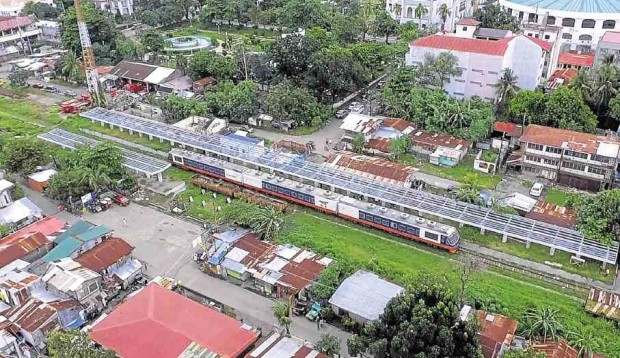BICOL EXPRESS TO RETURN....AGAIN!
The Bicol Express has been an on again, off again, service for as long as I have been going to the Philippines.
However, after a break of some years following an accident, the following article suggests that it is to again make a comeback.
Heres hoping it lasts longer this time round.

Train ride to Bicol ‘bumpy’
By: Delfin T. Mallari Jr., Juan Escandor Jr., Maricar Cinco -
@inquirerdotnetPhilippine Daily Inquirer / 12:24 AM November 19, 2016
NAGA CITY—It was not a smooth ride for the inspection run of the Philippine National Railways (PNR) train that would ply the Manila-Naga City route by Dec. 15.
The inspection train, made up of three coaches, left the Tutuban station in Manila at 5:15 a.m. on Friday, carrying PNR officials led by Joseline Geronimo, PNR officer in charge. The team had set out to reach Naga City in Camarines Sur province by nightfall Friday.
But it was a slow ride as informal settlers, wet market vendors, trees and sections of houses along the PNR track blocked the route in Laguna province.
Geronimo said the inspection was smooth until the train reached the Mamatid station in Cabuyao City, also in Laguna.
“After Mamatid, there were some interactions, encroachments by informal settlers [near the rail tracks],” Geronimo said.
The train had to stop at some point as PNR personnel remove debris, tree branches and trunks blocking the track or clear canopies of some houses.
In Calamba City, “talipapa” (village wet market) vendors were asked to move out for the train to pass through.
“We’ve fixed this issue (informal settlers) before but they just keep coming back. It’s one of the things we need to ask help from our local governments,” Geronimo said.
“Like in Candelaria (town in Quezon province), nakiraan pa kami (We had to ask permission to pass through). In Los Baños (town in Laguna), the coaches [hit the ground] in some elevated portions,” she said.
The train reached Lucena City at 11:30 a.m., stopping at the abandoned station. The PNR’s safety steel bar at the railroad crossing near the station and warning lights were broken.
As of 5 p.m. on Friday, the train was in Tagkawayan town in Quezon. It was expected to reach Ragay town in Camarines Sur at 6:30 p.m.
A portion of the railway bridge in Ragay that connects the villages of Apali and Apad is undergoing repairs, after it collapsed when a flash flood washed out one of its support foundations in March this year.
Geronimo said the inspection team would alight from the coaches in Ragay and transfer to another train to bring them to Naga City.
Ricarte Galopa, PNR security chief, said team members did not note any major safety issue along the route in Laguna and Quezon provinces.
xxx
“After the test run, an assessment meeting will immediately follow to discuss some critical areas along the Manila-Bicol route, particularly the conditions of the bridges,” Geronimo said.
Geronimo said she would invite officials from local governments along the route to help the PNR solve local problems, particularly the clearing of houses along the tracks.


